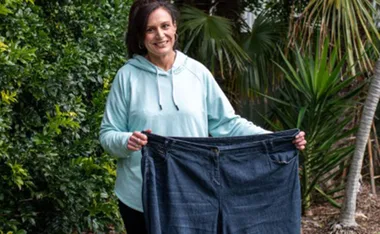Once upon a time, the word ‘milk’ meant the white stuff that came from a cow’s udder, but today there is an overwhelming array of varieties available. Dairy is a tried-and-true choice for your coffee or breakfast cereal, but should you give plant-based options, such as soy, almond, rice or oat milk a go?
Accredited practising dietitian Dr Georgina Williams from the University of Newcastle says the best milk for you depends on your individual health needs and taste preferences. Whether you’re motivated by health or environmental considerations, here is Dr Williams’ advice…
Rice

The main benefit of rice milk is that it’s low in allergens, so it’s ideal if you’re allergic to dairy, nuts or soy. However, it isn’t the strongest option nutritionally, Dr Williams says. ‘It is not always fortified with calcium, and it’s quite low in protein. It’s higher in carbohydrate, and because of that, it has a higher glycaemic load. So if someone had a condition where they’re monitoring their blood sugar levels, having too much rice milk might not be a good option.”
Dairy

Nutritionally, dairy milk is a fantastic option, Dr Williams tells us. ‘It’s high in calcium, it’s high in protein, and lots of other vitamins, such as B12. It’s also one of the cheaper ones on the market.’ However, for people with milk allergies, dairy is obviously best avoided. And some people might prefer not to drink cow’s milk for environmental or ethical reasons.
Soy

Many types of soy milk are calcium-fortified, Dr Williams says, and soy is naturally high in protein, which makes it similar to dairy milk in terms of nutritional benefits. ‘It’s also high in phytoestrogens, which may have benefits for preventing or managing cardiovascular disease,’ she says. ‘So soy milk is the plant-based alternative that I usually encourage people to turn to first.’ People with irritable bowel syndrome might find a soy-protein-based milk a better option than regular soy milk that’s based on soy beans, she adds.
Almond

Low in calcium and protein, almond milk doesn’t hit high on nutritional scores, unless you choose one that’s fortified with calcium. And a lot of water is used to make it, which means it’s a poor choice for the planet. ‘It often only has about two per cent almond and the rest of it is water. Because of that, we’re not getting a lot of protein or nutrients from the almonds,’ Dr Williams says. On the plus side, it’s low in kilojoules and does contain some monounsaturated (good) fats.
Oat

The main appeal of oat milk for some people is that it’s the most environmentally friendly, Dr Williams says. But nutritionally, it doesn’t pack as much punch as dairy or soy. ‘Similar to rice milk, because it’s based on a carbohydrate food, and the protein and a lot of the fibre is removed to make it, we get a product that has a slightly higher glycaemic load. So again, for people who are watching their blood sugar levels, it might not be the best choice.’ It does contain beta-glucan, a fibre well-known for its heart-health benefits. ‘One cup provides about one-third of your daily recommended beta-glucan intake,’ she says.
Label lessons
Within each category of plant-based milk, the range of products available can vary wildly, so Dr Williams recommends reading the nutritional label to find the best option for you. Here’s what she suggests you look for:
- Calcium – go for at least 100mg of calcium per 100ml
- No added sugar
- If possible, avoid added vegetable oils, emulsifiers and additives









